Here are some small and big good practices, which will add up and help you save resources in significant quantity. I have been following these good practices for some time now. If you do any action regularly and repeatedly then it becomes a habit. Therefore I am calling them Green Habits.
HOW TO SAVE WATER?
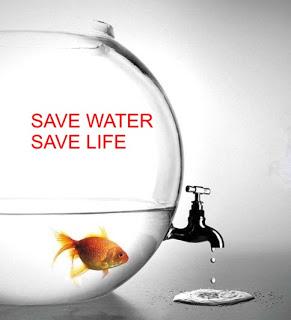
1. Over 50% of the water used in-house takes place in the bathroom. Toilet uses around 27%, showers 17%, taps 8%, and baths 2%.
2. While taking a bath instead of filling the bathtub, we can take quick showers.
3. At the start, water is not hot so we can collect cold water in the bucket and use it to water plants or clean the floor or washroom.
4. During the shower, while applying soap or shampoo, we can close the tap and avoid running water.
5. While shaving or brushing teeth close the tap.
6. During hand wash or face wash as we apply soap and rub the hands or face we can close the tap.
7. If possible, replace tap filters and shower heads around the house with water flow reducer. They are inexpensive, easy to install, and cuts water consumption from 10- 15 liters to 2 liters. Water flow reducer on taps saves 50-70 % of water.
8. For a washing machine, every time checking the water level depending on the load is necessary. Remember on average washing machine uses 40 gallons of water per load!
9. We can collect a week’s laundry and then run a washing machine instead of frequent cycles.
10. In a kitchen, while washing pots, we can close the tap while applying soap.
11. While washing vegetables and fruits instead of washing them in running water, wash them in collected water in the pot and then rinse.
12. While defrosting frozen meat or food don’t use running water. Instead, defrost overnight in the fridge or use a microwave or soak it in a container filled with water.
13. If you need to throw ice cubes or ice formed in the fridge drop them in house plants.
14. In gardens use organic mulching around plants to help them retain moister and reduce evaporation.
15. Instead of a hose, use drip irrigation to water the garden. A hose can release up to 10 gallons of water/ minute. Also, keep track of any leakage in an irrigation system.
15. Try to use local plants to minimize the problem of extra watering and specific soil needs.
16. Water roots, not leaves. Watering leaves increases the loss of water in evaporation.
17. Use wastewater from the kitchen, laundry to water the plants.
18. Wash your pet on lawns so that the grass gets watered automatically. Remember to use Eco-friendly soap though.
19. Use brooms to clean balconies, driveway, and sidewalks instead of washing it off.
20. Most importantly we can reduce the flow rate of water coming to our home at the main control valve; it will automatically reduce the amount of running water.
21. Regularly check if any LEAK is there in any water pipe. If it is there repair it immediately. A leaky toilet can waste 200 gallons of water /day and leaky faucets can waste up to 2,700 gallons of water/ year!
Read here our guide to conserving water.
HOW MANY GALLONS OF WATER I ALONE CAN SAVE?
22. If we reduce shower time by 2 minutes 150 gallons water/month will be saved = 1800 gallons/year.
23.While shaving if one closes the tap 100 gallons of water/ week will be saved=4800 gallons/year.
24. Regular tap use about 2.5 gallons of water per minute. While brushing teeth, washing hands and face; if close tap we can save water which will be approximate = 5000 gallons/year.
25. If we close the tap while washing dishes approximately water saved=5000 gallons/ year.
Just by small changes in habits one person can save minimum of 16,600 gallons of water per year!
HOW TO SAVE ELECTRICITY?
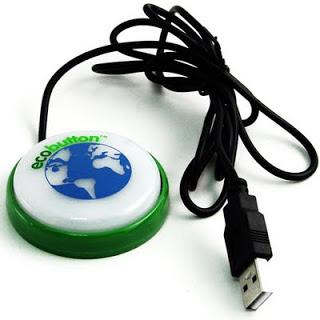
26. Most of the people in the UAE use air conditioning even in winter. If the weather is good then we can avoid A/C and save some energy. It is even good for health as you get more fresh air if you open windows.
27. During summer we can keep the A/C thermostat on 24 degrees centigrade instead of 20 degrees and save energy by avoiding overcooling.
28. While leaving home we need to check if A/C is off. Many people leave A/C on, just to cool the house when nobody is at home!
29. When A/C is on be sure that all windows and doors are closed properly. If the room is not properly sealed A/C will take more energy to cool.
30. Clean A/C vents and replace A/C filters to ensure A/C consumes less energy. This will also make sure that air circulated is cleaner, so it’s good for well-being too.
31. When we are working in one room lights in other rooms must be turned off.
32. During daytime open curtains and use natural DAYLIGHT.
33. Try to use energy saver lights, compact fluorescent lamps (CFLs) where possible instead of incandescent lamps. We can use energy savers lamps for mood-lighting also. CFLs use about one-quarter of the energy and last up to 10 times longer than regular incandescent lamps.
34. Use task lighting; put your light where you need it most, instead of brightening the whole room. Ex. table lamps, study lamps.
35. Make sure to have dedicated switches for different lights instead of a single switch for multiple lights.
36. Dust light bulbs regularly. Dirty and greasy light bulbs can reduce light output by 10 %!
37. Install dimmers in areas like the dining room, bedroom. The light that is dimmed by 15% reduces energy consumption by 15%.
39. Many people forget to switch off the lights and exhaust in the toilets.
40. Unplug electronic devices and chargers when not in use. These devices use energy even if they are not in use but plugged in. It is estimated that in the average home, 40% of electricity is consumed while home electronic devices are turned off and just plugged in.
41. Make sure you unplug your mobile charger when not in use. Only 5% of energy is used to charge the mobile, the rest is wasted leaving the charger plugged in.
42. Switching on and off very frequently consumes more energy. So if you are going to another room and coming back in 2-3 minutes then no need to switch lights off.
43. If you are watching TV then other appliances like computers, CD players to be turned off. Don’t turn on too many appliances at the same time if you really don’t need each one of them.
44. While washing clothes you can skip the dryer cycle and can use solar energy to dry your clothes! 15% of the energy will be saved!
45. Many times, we heat water and somehow keep it as it is and again re-heat it. So try to use hot water (bath or in the kitchen wherever) immediately to avoid reheating.
46. Don’t use the water heater in the UAE’s summer. Water gets naturally heated in summers.
47. Regularly set your refrigerator temperature according to seasons. In winter, you don’t need a very low temperature in your fridge. Don’t keep your fridge too cold.
48. Clean your fridge regularly and get rid of the frost and ice formed. This frost and formed ice increase the consumption of energy.
49. Keep the refrigerator full if possible. Surprisingly, it takes less energy to cool a full refrigerator or freezer than an empty one. However, don’t overload your fridge.
50. Never keep hot food directly in the fridge, instead keep it to cool naturally and then keep in the fridge.
51. Close the door of the fridge properly ever time you use it. If the door is not getting closed properly repair the fault immediately.
52. While going on vacation switch off all appliances and unplug the wires.
53. If you are planning to buy a new electronic appliance go for an energy-efficient appliance.
54. Switch your laptop and other devices to a power saver mode.
55. LCD monitors are 66% more energy efficient than normal CRTs.
56. Every day while going to/from your office or apartment, take stairs instead of elevators. You’ll save energy and can control your belly as well!
Don’t forget to celebrate EARTH HOUR in March and switch off the lights! But you can actually keep saving energy throughout the year with these tips!
HOW TO SAVE FUEL?
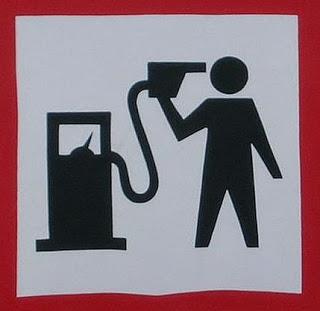
57. If we pressure cook some items instead of boiling like rice, dals, potato then less gas (fuel) will be used.
58. The gas flow rate of cooling gas can be reduced at a control valve so as to reduce the use.
59. Try to minimize the use of your vehicle. If we walk regularly, then fuel will be saved and in addition, gym fees will be saved too!
60. Instead of using your own vehicle, better to use public transport whenever possible.
61. While going to the office try to share the vehicle, so that the number of cars will be less on road. Fuel will be saved and you can help reduce traffic too!
62. The long walk is better than Long Drive. Experience it! (Don’t forget sunscreen, water bottle, cap, goggle, appropriate clothes, if it’s summer morning. Better to walk in the evenings during the summers.)
Read here our detailed article about sustainable transport.
HOW TO SAVE PAPER?
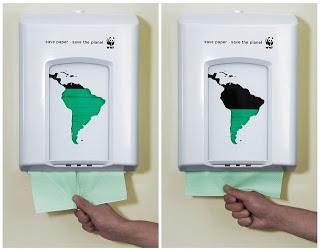
63. At your home keep a separate garbage bag for papers and put them in shredder or recyclers
64. Use lesser tissue papers.
65. In the kitchen, you can use cloth napkins instead of kitchen tissue papers.
66. Instead of daily newspapers, you can buy it on the weekend and every day you can read the newspaper online.
67. The papers which are used at one side the other side is blank. These papers can be used as rough papers.
68. Before throwing envelops, invitation cards, grocery bills, receipts, post-its you can use the backside (if it’s empty) for shopping and grocery list!
69. If you are throwing old diaries, notebooks take out all blank pages. Those can be used.
70. Reuse gift wrapping papers.
Don’t throw any paper, recycle it!
If you looking for some sustainable tips especially for your office, here is our guide to making the workplace eco-friendly.
HOW TO AVOID PLASTIC?
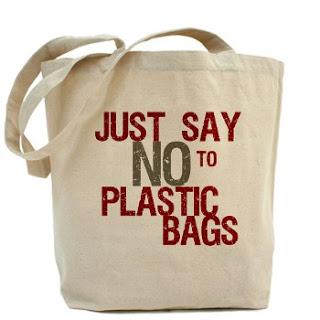
71. Say no to plastic carry bags at the supermarket! Bring your own cloth bags.
72. If plastic bags are unavoidable, that time try to avoid unnecessary bags.
73. Fruits and vegetable bags from the supermarket or those unavoidable carry bags can be used as garbage bags. We can avoid buying black trash bags.
74. Jute bags, Cotton bags, Paper bags are in vogue! Then why we need synthetic fiber bags, leather bags, and Plastic Bags?
75. If plastic is unavoidable go for BPA free and 5 grade or above plastic. (5 is written in the recycle triangle). So that you can keep reusing that plastic safely for food. Instead of disposable plastic items use another option.
76. Find alternatives to plastic items either in stainless steel, wood, or ceramic.
Read our complete guide to beat plastic pollution.
HOW TO MANAGE GARBAGE & PREVENT POLLUTION
78. Never dispose of any waste or garbage in the toilets. It clogs the drainage pipeline and extra water is used for flushing.
79. Make separate garbage bins for plastic, glass, tins/cans, paper, and biodegradable wastes and recycle them.
80. Think before you throw anything. You can always reuse items creatively.
Read here our guide to recycling correctly. Additionally, if you want a little more ambitious goals, here is our Beginner’s guide to going Zero Waste.
Hope you will adopt these simple and practical tips in your daily lifestyle and do your bit for our planet and future generations. Join our tribe here to get updates on a sustainable lifestyle

